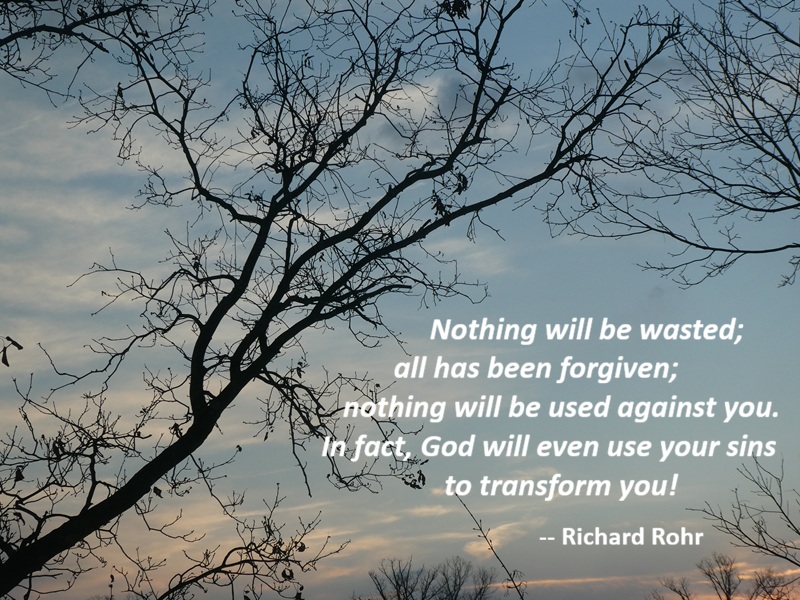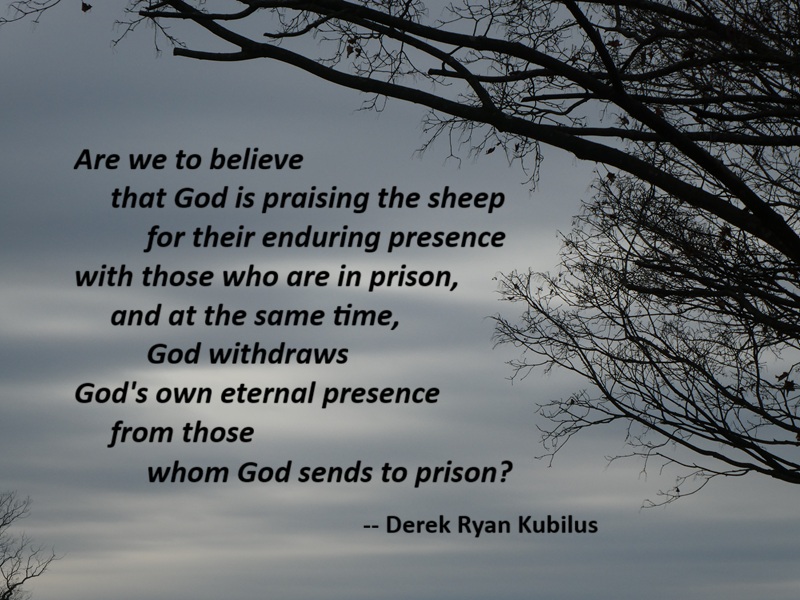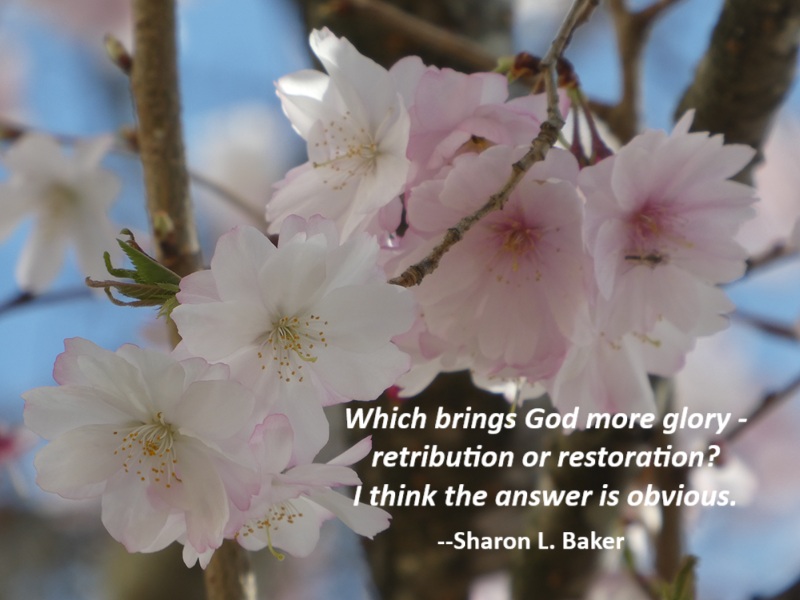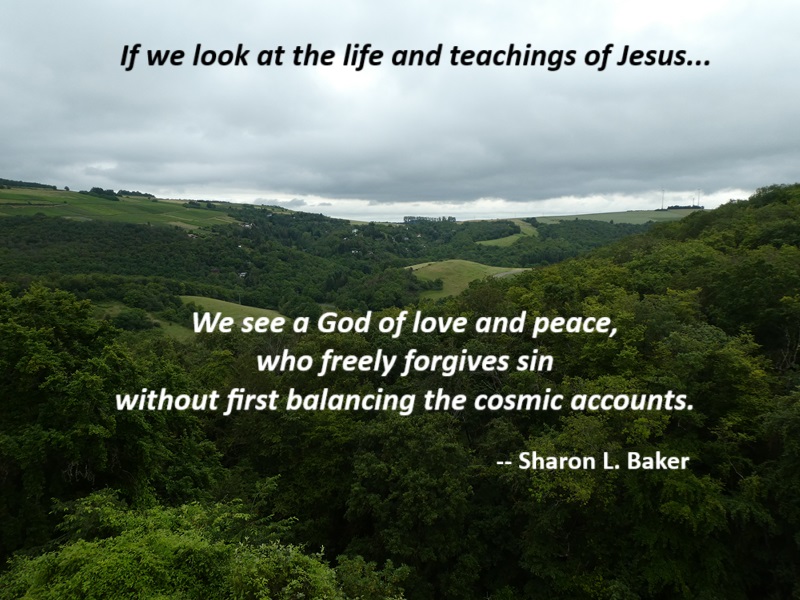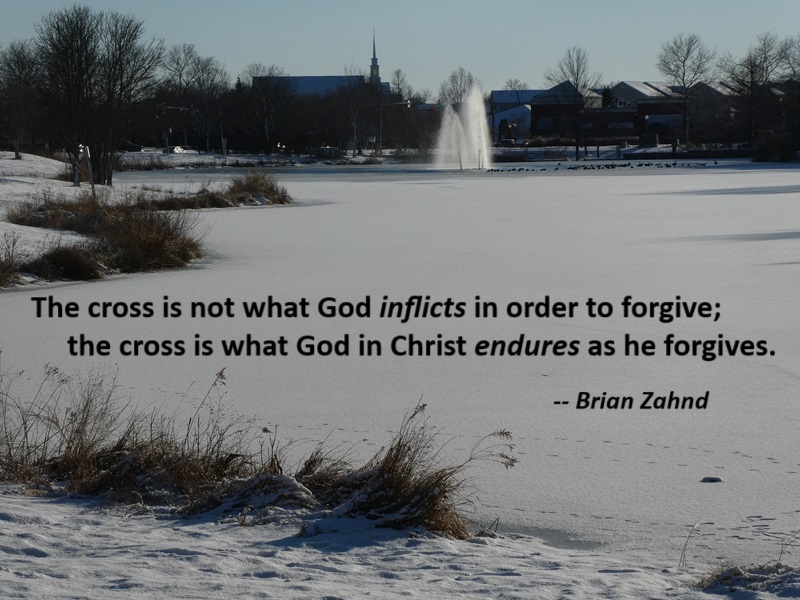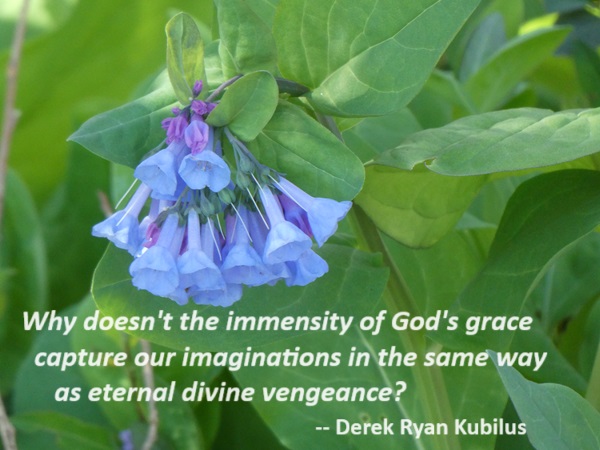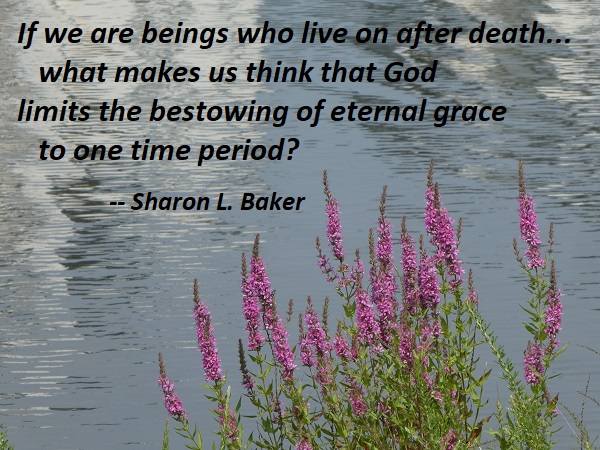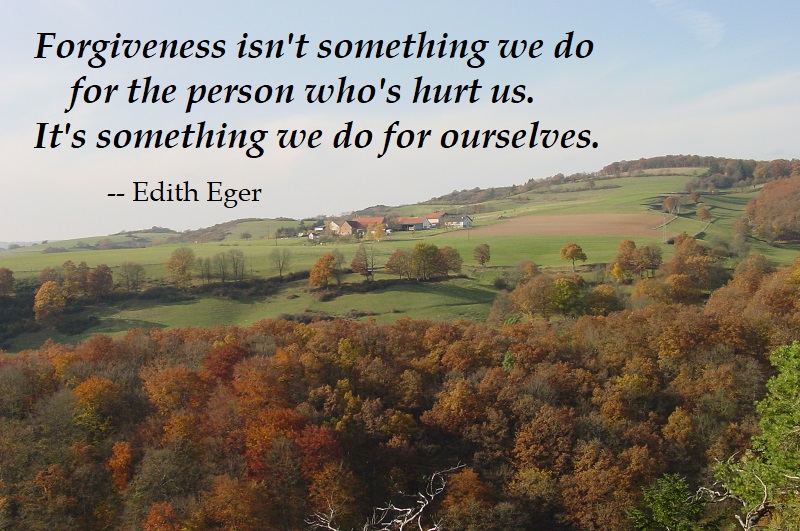Your Journey Matters.
Nothing will be wasted; all has been forgiven; nothing will be used against you. In fact, God will even use your sins to transform you!…
Your journey matters, and God’s covenanted love toward you is always unconditional and usually unilateral. If you accept this good news, the universe suddenly seems to be a very safe place.
Why do I believe that? Because I see that’s th way Jesus responded to everybody. When the Samaritan woman comes to him with five husbands (John 4:18), he doesn’t start by imposing his agenda. He receives her story. Morality is always inside a narrative, always inside a context. From that accepted starting place, he calls the soul forth. He doesn’t recommend that she go through an annulment process. He doesn’t check out how many commandments she has obeyed or disobeyed. Instead he makes her an apostle! He sends her out to advertise the good news to the neighboring village. That’s how Jesus received people. He received the story that was in front of him and oriented it toward light and freedom. That doesn’t mean he didn’t challenge it sometimes. But if Jesus is the revelation of the heart of God, that is very good news about the nature of God. You do not need to be afraid. You need not fear; your life will be honored and used in your favor!
— Richard Rohr, Everything Belongs, p. 129-130
Photo: Sunrise, February 11, 2026
